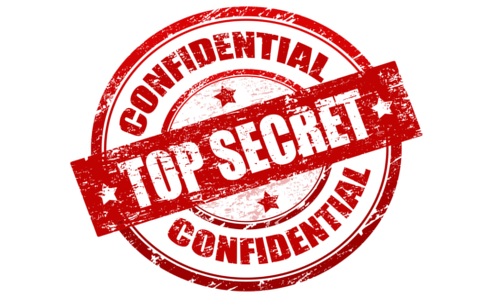In order to better understand the past and present state of trade secret legislation, it is important to understand what a trade secret is and why it is often viewed differently from other intellectual property rights.
What is a Trade Secret?
Trade secrets can include a broad range of proprietary information, including product development plans, customer information, and even formulae. In order to have your trade secret protected, you:
- must be using the trade secret
- the trade secret must be conferring you with an economic advantage
- the trade secret must not be generally known in the industry
- the trade secret must be protected in a way that safeguards its confidentiality
If all of these elements are met, the owner of the trade secret may file a suit when the secret is acquired, used, or disclosed by illegal means.
Why are Trade Secrets different from other IP rights?
Unlike patents and copyrights that are governed by federal statutes, trade secret rights fall under state law. This usually makes trade secrets the “odd man out.” Congress is now considering making a federal civil action for trade secret misappropriation, including remedies that are currently unavailable under state law. Not only does Congress believe state law for trade secrets is inadequate, they also have expressed concern about the threat posed by international espionage.

History of Trade Secret Legislation
Trade secret laws developed from common law principles of agency, trusts, and torts. Since these principles varied from state to state, the Uniform Trade Secrets Act (UTSA) was adopted by many states beginning in the 1980’s. 47 states have adopted the UTSA today.
The statute directed at trade secrets is the Economic Espionage Act of 1996, in which the EEA created criminal penalties for trade secret misappropriation. However, there was no room to bring were civil action for damages. Congress amended the EAA in 2012 to clarify that the EAA applied to trade secrets in use or intended to be in use. They also increased the range of available criminal penalties.
Proposed Legislation on Trade Secrets
House Bill 5233, known as the “Trade Secrets Protection Act of 2014” hoped to make a path for civil action for misappropriation of trade secrets. The bill also proposed a civil seizure remedy that would authorize the court to enter an Ex Parte Seizures to preserve evidence or to prevent the “propagation or distribution” of a misappropriated trade secret. Lastly, the bill hoped to create expanded remedies, including compensatory and punitive damages.
The Senate hoped to pass a similar bill, the Defend Trade Secrets Act of 2014, and both the House and the Senate had the support of many industry groups, who believed such a bill would protect trade secrets and combat any industrial espionage efforts. Critics argued that Congress did not need to step in if the current system of state laws worked. These critics further added that adopting federal statutes would erode state activity in the trade secret areas, resulting in fewer trade secret laws in the future. However, President Obama made some changes to trade secret legislation in the past few days.
Defend Trade Secrets Act of 2016 (DTSA)
On May 11, President Obama signed into law the DTSA. This enables companies to go to federal court to sue for misappropriation of trade secrets. The DTSA now allows for Ex Parte Seizures in “extraordinary circumstances.” The law also expands remedies, such as adding Exemplary Damages and rewarding attorney’s fees. Injunctive relief is also provided and expanded with the DTSA.
With the passing of the DTSA, private parties do not have to rely solely on state law when it comes to protecting their trade secrets. The hope is that this new trade secret protection will allow trade secrets to function like other intellectual property rights and provide secret holders with more protection.

Sources referenced:






